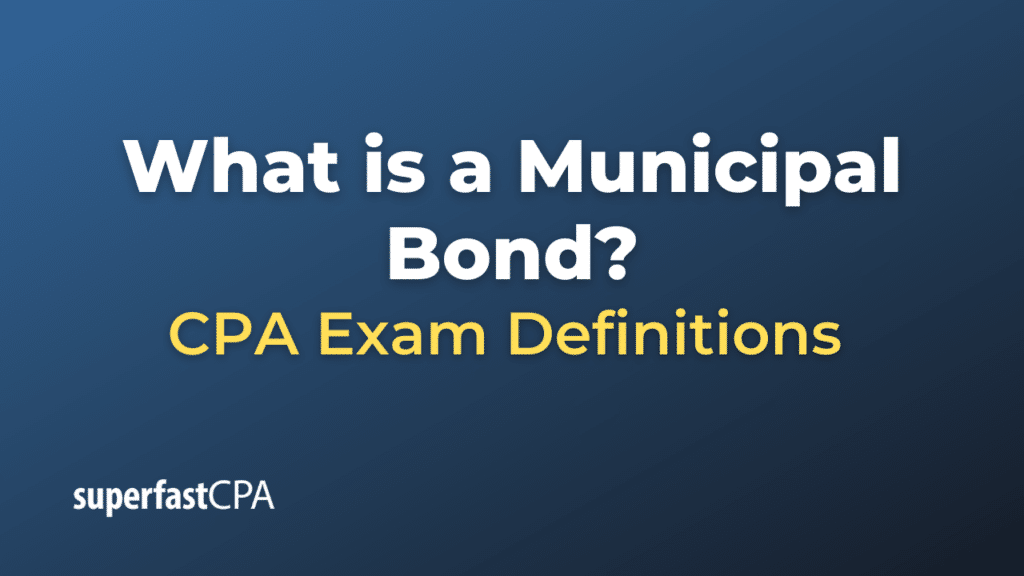Municipal Bond
A municipal bond, often called a “muni,” is a type of bond issued by local governments or their agencies to finance various public projects such as building schools, highways, hospitals, and sewer systems. These bonds are typically exempt from federal taxes and often from state and local taxes as well, particularly if the investor lives in the state where the bond was issued.
Municipal bonds come in two varieties: general obligation bonds and revenue bonds.
- General Obligation Bonds: These bonds are backed by the full faith and credit of the issuer, which has the power to tax residents to pay bondholders. These bonds are often used to fund public projects that will not produce revenue directly, such as parks or schools.
- Revenue Bonds: These bonds are backed by revenues from a specific project or source, such as a highway toll or a municipal utility. The issuer is only obligated to repay if the project is successful and generates the projected income.
Investors typically consider municipal bonds to be relatively safe investments, as they have historically had low default rates. They can be a good choice for conservative, income-focused investors, especially those in high tax brackets due to their tax-exempt status. However, like all bonds, they carry some level of risk, including interest rate risk and the risk of issuer default.
Example of a Municipal Bond
Let’s say the city of Springfield needs to raise funds for a new public park. To finance this project, it decides to issue a series of municipal bonds. Each bond has a face value of $1,000, an interest rate of 5% per annum, and a maturity date of 10 years from the issue date. The city plans to repay the principal amount, or face value, of the bond at the maturity date.
As an investor, you decide to buy one of these bonds. You pay $1,000 to the city of Springfield and, in return, you receive a promise from the city to pay you interest of $50 per year (5% of $1,000) for the next 10 years. At the end of the 10 years, the city will also return your original $1,000.
The interest you earn on this bond – the $50 per year – is typically exempt from federal taxes and possibly from state and local taxes as well. This tax-exempt status is one of the key advantages of investing in municipal bonds.
If for some reason, you need to get your $1,000 back before the 10-year maturity date, you can typically sell your bond on the secondary market. However, the price you get for your bond on the secondary market could be higher or lower than $1,000, depending on various factors including changes in interest rates and the creditworthiness of the city of Springfield.













